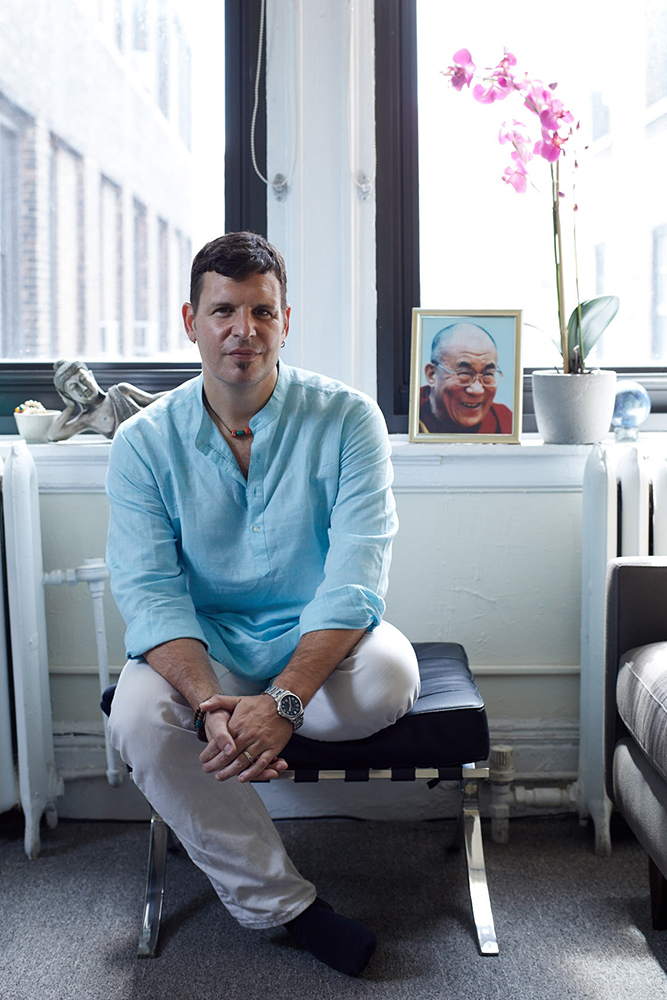Here are some recommendations from contemplative psychotherapy for working with transgressions by or painful break with a spiritual teacher while avoiding overidealization, shame, or blame. Begin by establishing safety and inviting self-compassion; then cultivate discernment and insight; and finally embody realistic compassion for others. Getting the progression right avoids spiritual bypassing.
1. Don’t abandon yourself.
The Buddha recommended that we defer to our own experience after a full and critical evaluation of any teacher and teaching. If your intuition tells you something is off, is wrong, or is hurtful, acknowledge and trust that—even (and especially) when no one else will. Be your own advocate. Devotion or allegiance shouldn’t override common sense. The purpose of the student-teacher relationship is to empower the nascent guru within you, and this includes developing your ability to recognize contradictory and uncomfortable feelings. After a violation, it’s important to establish a safe distance, honor your pain with self-compassion, and then honestly and independently assess the factors and consequences with wise discernment. Finally, when you are ready, speak and embody your truth. If you can’t follow this process on your own, find someone who is neutral, impartial, and trustworthy, such as a counselor, who can help you find the requisite safe space to sort it all out.
2. Recognize that it’s not your fault
Trauma and breaches of trust blindside us. Our knee-jerk reaction is often to assume the burden of responsibility and blame as we try to gain control over an unexpectedly painful situation by attempting to improve or repair it or to vindicate ourselves. If we did our best to evaluate a teacher before committing to the relationship, we are not to blame for having been deceived or taken advantage of. Dependency is not the problem; the problem is human affliction, which is often unconscious and concealed. Self-blame is an internalized second aggressor that can victimize us long after the external damage is done. Self-compassion is like applying first aid to a wound and is the necessary first step to any process of healing.
Related: How Buddhist Student-Teacher Relationships Go Awry in the West
3. See through appearances
Breaches of trust by a teacher can activate, aggravate, and compound similar past traumatic experiences latent in the psyche. It’s our responsibility to work through the tangle of associations, emotions, and memories by separating the residue of the past from our perceptions and experience in the present. Only after the ground of self-compassion has been established can the wisdom born of self-analysis and critical discernment deepen our process of healing. If analysis is applied too soon, we risk remaining intellectual and detached, thus reinforcing dissociation in a classic spiritual bypass. Compassion alone isn’t penetrating enough to cut through distortions, but compassion must precede wisdom if that wisdom is to be authentic and embodied. Once we connect with and validate our emotional experience sufficiently to regain a more balanced, open perspective, we are better able to see through our own projections. We can then learn from our part of the interaction while holding others accountable to theirs, and ultimately begin to let go of rigid victim-aggressor identifications that connect us in a prison of our own making. The pain of an emotional break with those we admire and love need not define us if we are prepared to experience that pain fully and let it dissipate naturally. We can also cultivate the deep insight that we will always be more than the rubber stamp of any single event, feeling, or belief.
4. Invest your trust wisely
What has been the cost of our determination to never love or trust again following a breach of trust? How have our short-term defense strategies that are designed to keep us safe in the moment actually become long-term automatic mandates that arrest our development and perpetuate worst-case scenarios? How much of our life is compromised because we are unable to heal and trust ourselves and become vulnerable to others once more? If we relied on someone who hurt us and our way of coping is never to let ourselves rely on someone again, we’re left to navigate the vast ocean of life alone—and we won’t make it very far. The answer is not to forgo trust but to learn from our mistakes so that we can trust more wisely.
Related: Opinion: How Rigpa Can Redeem Itself in the Wake of Sogyal Rinpoche’s Resignation
5. Find compassion
When you’ve come to some deeper self-acceptance and insight, genuine—not forced—compassion for the limitations of spiritual teachers who have violated our trust may arise. This doesn’t negate or make excuses for their mistakes—we must hold people accountable both legally and morally for their harmful actions—but once we have established that it wasn’t our fault and take the appropriate steps, we need to go beyond accountability and try to look at the deeper story behind our teacher’s failure. Remember that we are all struggling with delusion and a fiction, and are all equally deserving of understanding; but don’t conflate the weakness of sympathy with the strength of wise compassion. As sad as they may be, breaches of trust with spiritual teachers can provide us with the necessary compost for healing and awakening. They bring with them an opportunity to find a middle way between immature overreliance, depending on others in the guise of devotion, and a reactionary withdrawal in the guise of bulletproof independence. Between these two extremes lies fertile ground for the development of a mature reliance on others and oneself—one based equally on care and discernment, which creates the kind of interdependence that will allow us to effectively navigate life in a highly social world.
Thank you for subscribing to Tricycle! As a nonprofit, we depend on readers like you to keep Buddhist teachings and practices widely available.
